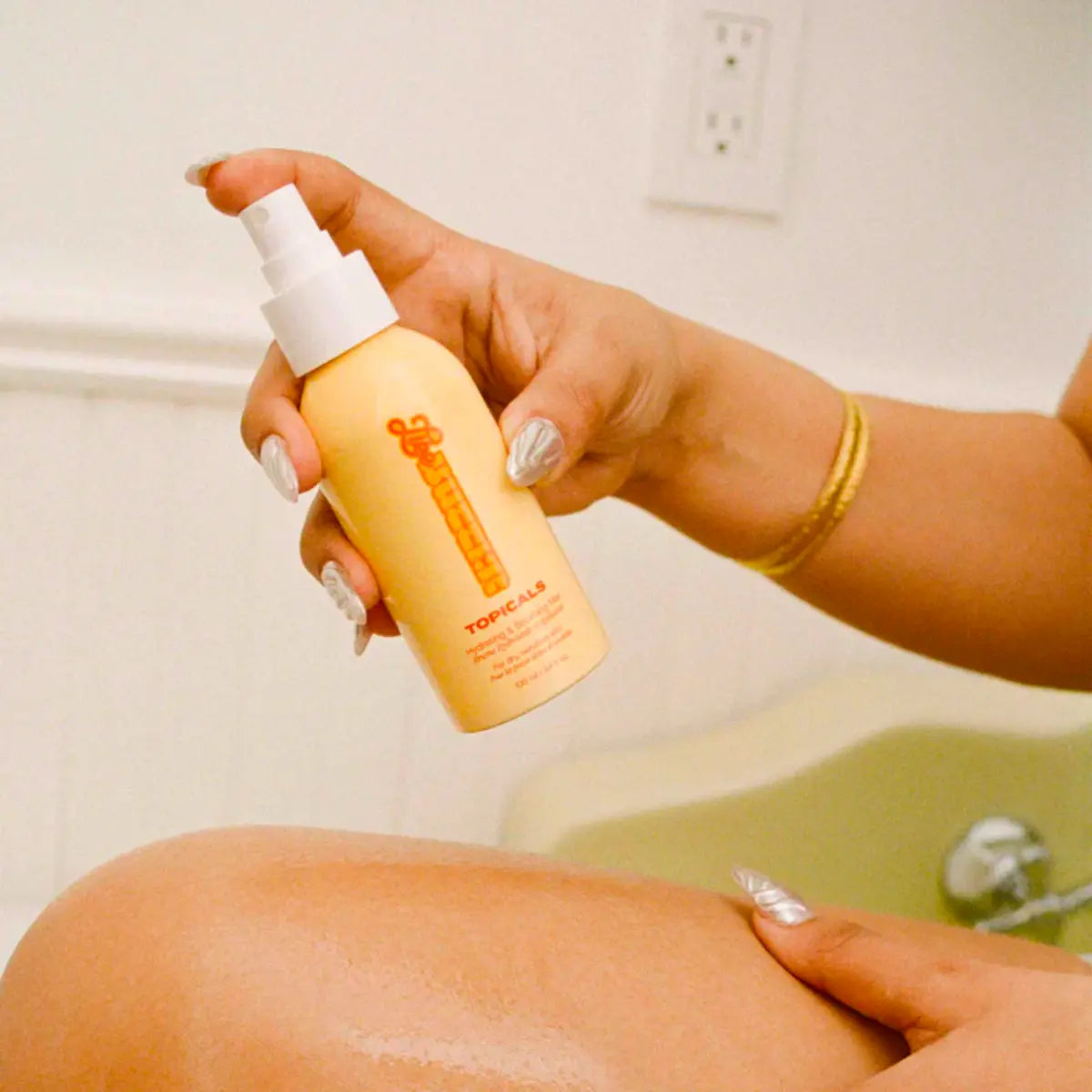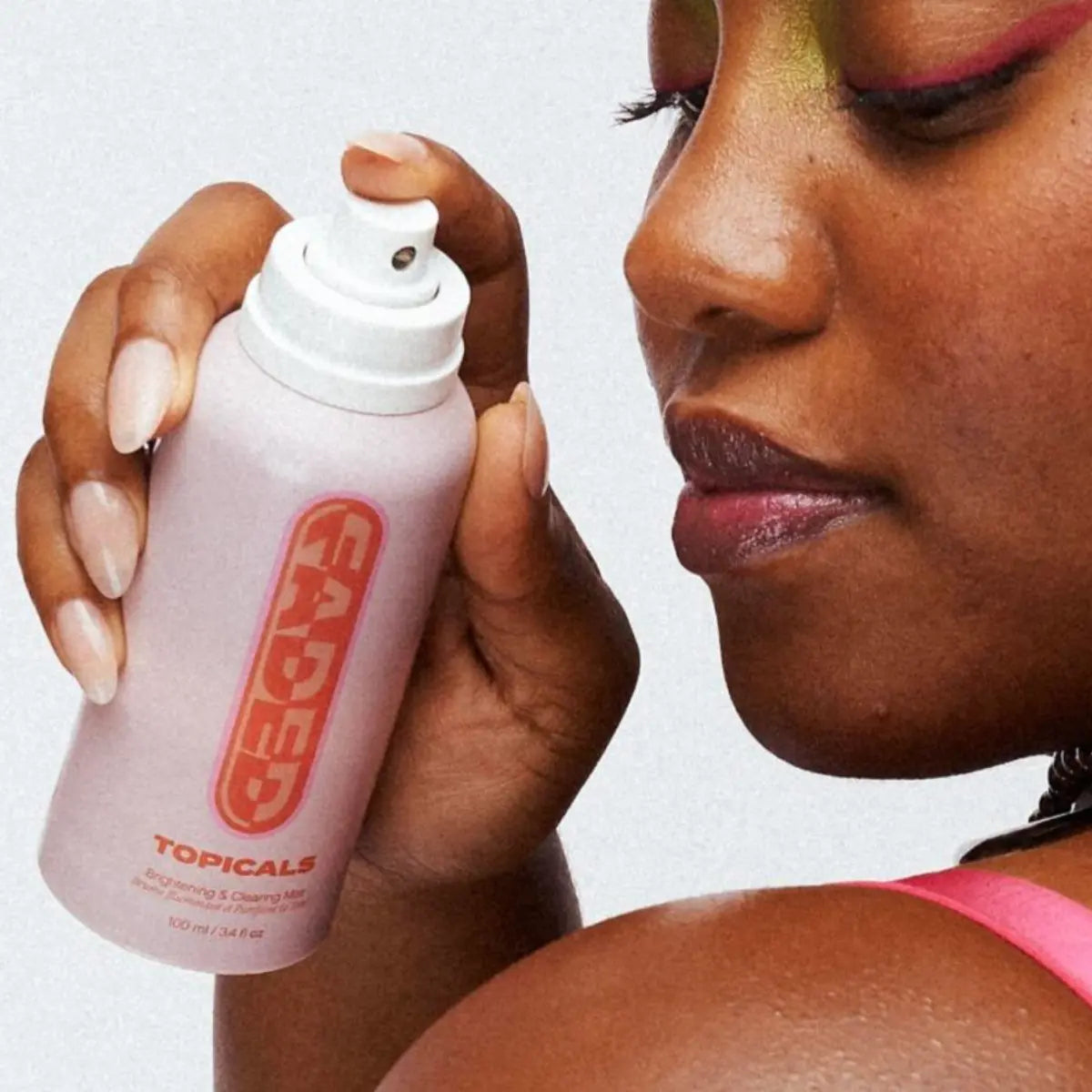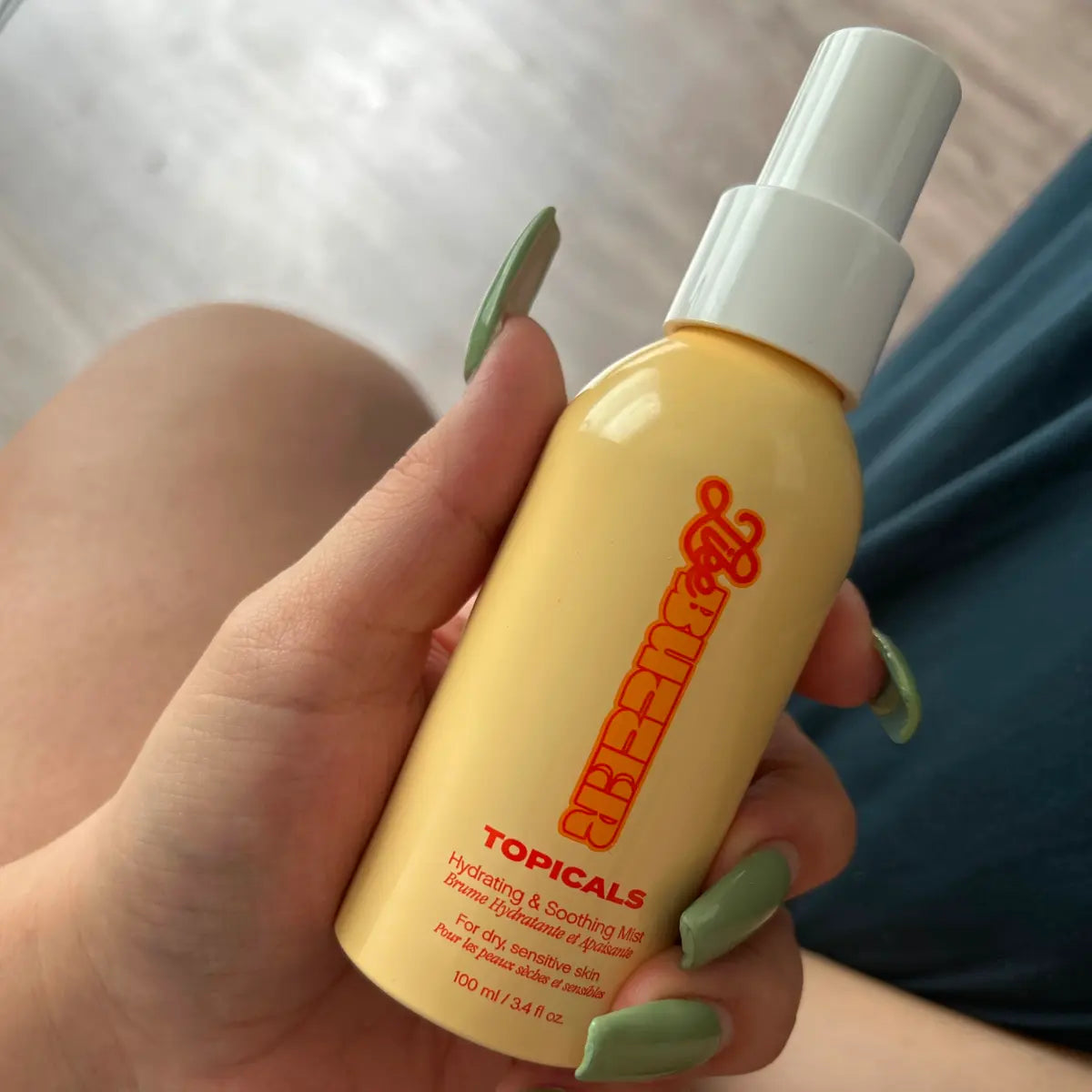Gifting has never been easier
Perfect if you're short on time or are unable to deliver your gift yourself. Enter your message and select when to send it.
Sensitive black skin is a unique and beautiful canvas that requires special attention and care. This type of skin is not only prone to common irritants found in many skincare products but also faces specific challenges such as hyperpigmentation, dryness, and inflammation more acutely. It's crucial to understand that skincare for black people involves more than just picking out generic products; it necessitates a deep dive into what truly works for melanin-rich, sensitive skin. Recognizing the ingredients and formulations that harmonize with sensitive black skin can make all the difference in achieving a radiant, healthy complexion.
Black skin tones exhibit a magnificent spectrum of shades, each with its unique characteristics and needs. This diversity means that skincare solutions must be versatile and adaptable. Understanding this variability is the first step toward effective care. It's essential to recognize that melanin-rich skin, while providing some natural protection against sun damage, also has its specific challenges. The key lies in embracing this diversity and offering skincare options that cater to the wide range of sensitivities and skin concerns within the black community. Individuals with sensitive black skin often experience a range of issues, including dryness, irritation, and eczema, more intensely than those with less sensitive skin types. These problems are exacerbated by factors like harsh weather conditions, stress, and the use of inappropriate skincare products.There are prevalent skin concerns in black skin, such as hyperpigmentation, uneven skin tone, dark spots, acne, and how to address them with targeted treatments.

Many products on the market contain irritants and harsh chemicals that can exacerbate sensitivity issues, leading to discomfort and damage. Furthermore, the lack of representation and tailored options for black skin in the skincare industry poses a significant challenge. It highlights the importance of advocating for and seeking out the best skin care products for sensitive black skin.
A strong and healthy skin barrier helps to retain moisture, resist irritants, and maintain overall skin integrity. Using the best skin care products for black sensitive skin that reinforce this barrier, rather than undermine it, can significantly improve skin health. This involves selecting gentle, hydrating, and nourishing ingredients that support the skin's natural defenses, ensuring it remains resilient against external stresses.
Certain ingredients can do more harm than good, leading to irritation, dryness, and even damage to the skin's natural barrier. By being aware of what to avoid, you can protect your skin and keep it healthy and glowing. Here’s a list of products that should be avoided to maintain the health and integrity of black skin:
By avoiding these potentially harmful ingredients, you can reduce the risk of irritation and ensure your skin remains healthy, resilient, and radiant. Opting for gentle, fragrance-free, and nourishing formulations can make a significant difference in the overall condition of your skin, promoting a clearer, smoother, and more vibrant complexion.
The skincare industry is filled with products claiming to be the best cream for dark spots on face-sensitive skin. It's important to become savvy in reading labels and understanding marketing jargon. Look for products with scientific backing and those recommended by dermatologists. Certifications like "dermatologist-tested" and "hypoallergenic" can be good indicators of a product's suitability for sensitive skin. Remember, the most expensive product on the shelf is not always the most effective. Focus on the ingredients and the needs of your sensitive skin to guide your choices.
Cleansing is a foundational step in any skincare routine, especially for sensitive skin. Opting for mild, hydrating cleansers can prevent the skin from becoming stripped of its natural oils, which are vital for maintaining moisture and preventing irritation. As emphasized previously, it’s important to choose cleansers that are free from harsh sulfates, fragrances, and potential irritants, ensuring the skin is left clean but not tight or dry.
While it can be tempting to experiment with at-home skincare devices and DIY concoctions, these approaches carry significant risks, especially for sensitive black skin. Devices such as at-home lasers and microdermabrasion tools are often not calibrated for darker skin tones and may cause burns, hyperpigmentation, or scarring. Similarly, homemade skincare treatments using unregulated ingredients can result in rashes, irritation, or even exacerbate existing skin concerns like hyperpigmentation. Because melanin-rich skin is more reactive to trauma and inflammation, even minor mishaps can have lasting effects. It’s crucial to approach these methods with caution and avoid trends that lack scientific backing or expert endorsement. Before trying any at-home device or DIY remedy, consult a dermatologist who understands the unique needs of black skin. Professional advice ensures that treatments are safe and tailored to your individual skin type, helping you avoid unintended damage and achieve healthier results.

Proper hydration techniques can prevent dryness, dullness, and the premature appearance of wrinkles. By following a few key practices, you can significantly enhance your skin's moisture levels and overall health. Below are some essential hydration techniques, elaborated to give your skin the best care possible.
Maintaining well-hydrated skin is a multifaceted approach that involves both topical treatments and lifestyle habits. By incorporating these essential hydration techniques into your daily skincare routine and ensuring you drink plenty of water, you can help your skin thrive, keeping it radiant, healthy, and resilient against the challenges it may face.
Selecting the best toner for sensitive black skin requires a focus on formulas designed to soothe, hydrate, and balance the skin's pH without stripping it of essential moisture. Look for toners containing aloe vera, rose water, or chamomile, which have calming properties to reduce irritation. Ingredients like witch hazel can be beneficial if they are alcohol-free, as they help minimize pores and control excess oil gently. A good toner for sensitive skin should leave your skin feeling refreshed and prepared for the next steps in your skincare routine, without any sensation of dryness or tightness.
Hyperpigmentation and dark spots can be particularly stubborn on sensitive black skin. Finding the best cream for dark spots on face-sensitive skin involves products that are potent yet gentle. Look for treatments formulated with ingredients known for their brightening capabilities, such as vitamin C, kojic acid, and licorice root extract. These ingredients can help fade dark spots without irritating them. Additionally, products containing niacinamide not only address hyperpigmentation but also strengthen the skin's barrier function.
Despite the natural UV protection that higher melanin content provides, sun protection remains essential for black skin. Many people mistakenly believe that darker skin tones are immune to sunburn and sun damage, but this is a misconception. Black skin can still experience harmful effects from UV exposure, including sunburn, premature aging, and an increased risk of skin cancer. In fact, studies show that people of color are often diagnosed with skin cancer at later stages, leading to worse outcomes. Consistent use of broad-spectrum sunscreen with at least SPF 30 is crucial, even on cloudy days or when indoors near windows. It's important to select sunscreens that blend seamlessly into darker skin tones without leaving a white cast. Mineral sunscreens containing zinc oxide or titanium dioxide are ideal for sensitive skin as they are less likely to irritate chemical filters. These sunscreens sit on top of the skin to physically block UVA and UVB rays, providing a protective barrier. Look for non-comedogenic formulas. It's important to choose a product that doesn't leave a white cast, which can be a common concern with mineral sunscreens on darker skin tones. There are now many formulations specifically designed to blend seamlessly into black skin, offering effective protection without compromising on aesthetics. Understanding the signs of sun damage is vital: while redness may be less visible, symptoms like skin darkening, peeling, or increased hyperpigmentation often indicate overexposure. Staying vigilant about sun protection and recognizing subtle signs of damage can help maintain skin health and prevent long-term issues.

The impact of lifestyle choices, such as diet, sleep, and overall health, on the condition and sensitivity of black skin.
Foods rich in antioxidants, such as berries, nuts, and green leafy vegetables, can help protect the skin from damage caused by free radicals. Omega-3 fatty acids, found in fish and flaxseeds, are essential for keeping the skin hydrated and reducing inflammation. Avoiding high-sugar foods and dairy products may also benefit those prone to acne or other skin sensitivities.
Sleep is essential for skin health, as it's during this time that the body repairs and regenerates skin cells. Ensuring you get enough quality sleep can help reduce the appearance of dark circles, improve skin texture, and support the skin's natural healing processes. Aim for 7-9 hours of sleep per night and consider incorporating a nighttime skincare routine that supports skin repair, such as using products with retinol or peptides, which can stimulate collagen production and cell turnover.
The journey to finding the perfect skincare routine for sensitive black skin can be challenging, but armed with the right information and a holistic perspective, it's entirely possible to achieve and maintain healthy, beautiful skin. Remember to listen to your skin, be mindful of how it reacts to different products and environments, and don't hesitate to seek professional advice when needed. The value of consulting dermatologists familiar with black skin and advocating for personalized care based on individual needs cannot be doubted. Discover solutions designed to soothe and balance sensitive skin at Topicals, where science meets self-care for every shade of beautiful. With patience and persistence, you can navigate the world of skincare with confidence, embracing your unique skin with the care it deserves.
